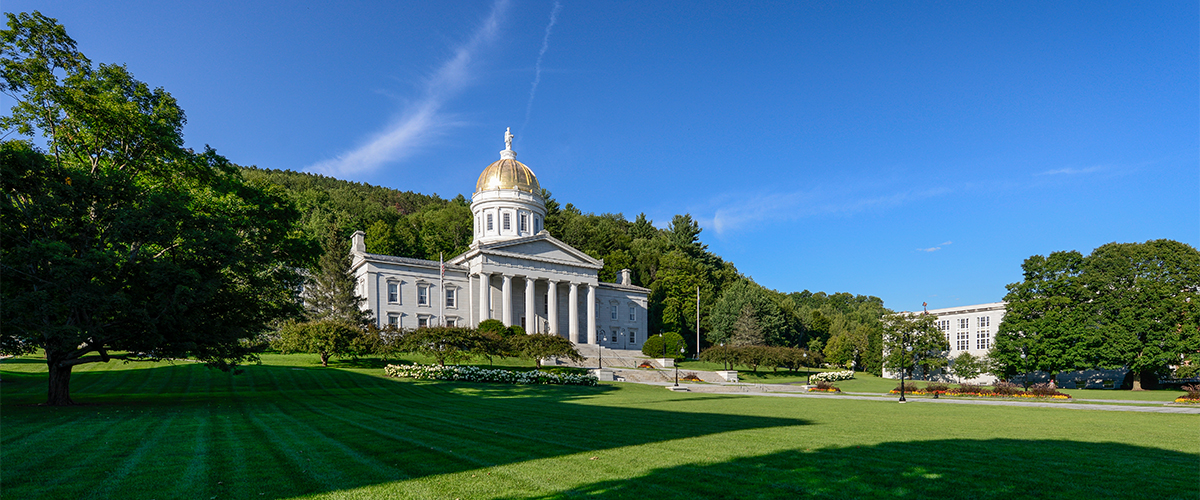Using and possessing marijuana in Vermont is legal, but buying it is not. Now a bill is making its way through the legislature to change that.
Could regulated marijuana sales be in Vermont’s future?
In 2018, Vermont legalized the possession and use of recreational cannabis, but the law lacked regulatory or sales provisions. Now, several state lawmakers want to change that by passing a bill that would create a system to sell and tax marijuana in the state.
Vermont’s House Committee on Government Operations has already approved the marijuana regulation approval in a vote of 11-0, and it’s since been sent on to the House Committee on Ways and Means for consideration.
Michele Childs, a House legislative counsel, told Marijuana Moment that the committee members will have a “discussion of taxes and fees.” If approved by the Committee on Ways and Means, the bill is then expected to be taken up by the Appropriations Committee before finally reaching the House floor.
S.54 calls for the creation of a Cannabis Control Board to act as a regulatory system. It also imposes a 16 percent tax on marijuana sales, with up to 30 percent of that revenue going toward the funding of substance abuse treatment programs. The legislation caps the potency of marijuana flower at 30 percent THC, and the potency of concentrates at 60 percent THC.
The Vermont Senate initially passed S.54 last Spring, but the bill was never acted upon by the House. According to an AP News report, State House representatives claimed they did not have time to review the bill.
“It is past time to enact a bill creating safe legal access to cannabis,” State Senator Richard Sears (D), one of the lawmakers who introduced the bill last year, said at a press conference last month at the Statehouse. “I am here to say that the Senate is ready to work with the House counterparts to move this bill.”
The marijuana bill being considered comes after multiple attempts by lawmakers to pass laws to regulate and tax marijuana in the state. Shortly after Vermont Gov. Phil Scott (R) signed into law Act 86 to legalize recreational cannabis, he formed the State of Vermont Marijuana Commission.
The commission was tasked with evaluating the experience of other states with cannabis legalization and to examine credible research and available data in order to make recommendations to the governor on specific matters including tax and regulation.
Some residents and lawmakers voiced concerns about legalizing marijuana sales in the state during a January panel discussion at City Hall in Burlington, VT. Among the panelists was Vermont Attorney General TJ Donovan, who according to a local news report, argued the current legal structure created a deadlock.
“The bottom line is, it’s been legalized in this state,” Donovan said. “Now the question is, what do we do next?”
Vermont’s Marijuana Laws
Vermont’s current marijuana law, Act 86, was signed by Gov. Phil Scott in Jan. 2018 and took effect in July of that year. The law allows for marijuana to be possessed and grown by adults 21 years of age and older for personal use, but not sold.
The law left adults the only option of obtaining cannabis through personal growing methods. Vermont’s adult-use cannabis law allows individuals 21 and older to legally grow up to two mature cannabis plants and four immature plants.
The recreational marijuana law does not impact the state’s medical marijuana program, which went into effect in 2014. Vermont’s medical marijuana program allows the legal use and possession of up to two ounces of marijuana.
Vermont has long been more lenient toward cannabis, having decriminalized small amounts of marijuana in 2013.
Marijuana in the News
So far, 2020 is shaping up to be a big year for cannabis policy with 11 states considering marijuana legalization. Follow the developments with us by checking back in at our cannabis policy page.
To read the latest reports on cannabis business and scientific research, visit our cannabis news page.
EDITOR UPDATE 2/6/2020 : On Wednesday, Feb. 5, the Vermont House Ways and Means Committee voted 8-3 to advance the bill to license and tax cannabis businesses.






